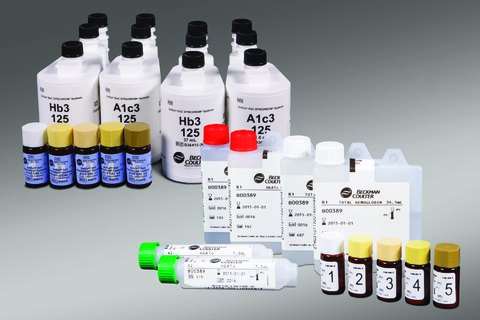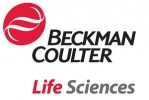
Beckman Coulter Diagnostics has launched its next generation haemoglobin A1c (HbA1c) assay with improved performance across all of its chemistry systems.
The assay, with CE Mark approval, has been standardised for use on all platforms of the company’s AU clinical chemistry systems for offline sample preparation use, in addition to online sample preparation use on the company’s UniCel DxC systems.
US Food and Drug Administration (FDA) 510(k) clearance has been received for the assay on both the AU and DxC series of chemistry analysers.
The next generation HbA1c assay is an enhanced reagent formulation, developed to continue to meet the latest accuracy grading from the College of American Pathologists (CAP) and the recommendations of the National Glycohemoglobin Standardisation Program (NGSP) and International Federation of Clinical Chemistry (IFCC). HbA1c is standardised and holds a certificate from the NGSP.
Beckman Coulter has joined forces with Canterbury Scientific to distribute the extendSURE liquid ready-to-use control for the AU and UniCel DxC HbA1c assays.
The extendSURE liquid controls are value -assigned specifically for Beckman Coulter’s AU and UniCel DxC clinical systems.
The extendSURE control is available in two kit sizes, one of which represents a one-year supply of the same lot. The control has open-bottle stability of 30 days and a long shelf life of 30 months.
“Availability of the next generation HbA1c assay on the AU clinical chemistry product line is a demonstration of Beckman Coulter’s commitment to providing laboratories with the latest solutions to manage patient care,” said Kathleen Orland, vice president, Clinical Chemistry/Immunoassay Product Management, Beckman Coulter Diagnostics.
“The new assay and the Canterbury Scientific control will allow clinicians to maintain diabetic patients under better glycemic control and better manage complications of the disease.”
Measurement of haemoglobin A1c is accepted as a method to measure long-term glucose control in patients with diabetes mellitus.
Determination of haemoglobin A1c provides the average level of blood glucose over the previous three months and is an important tool for monitoring the efficiency of dietary control and therapy during treatment for diabetes.
The HbA1c assay, when used in conjunction with Beckman Coulter’s Synchron/AU Hemolyzing reagent or HbDil, is intended for the quantitative determination of haemoglobin A1c concentration in human whole blood.





